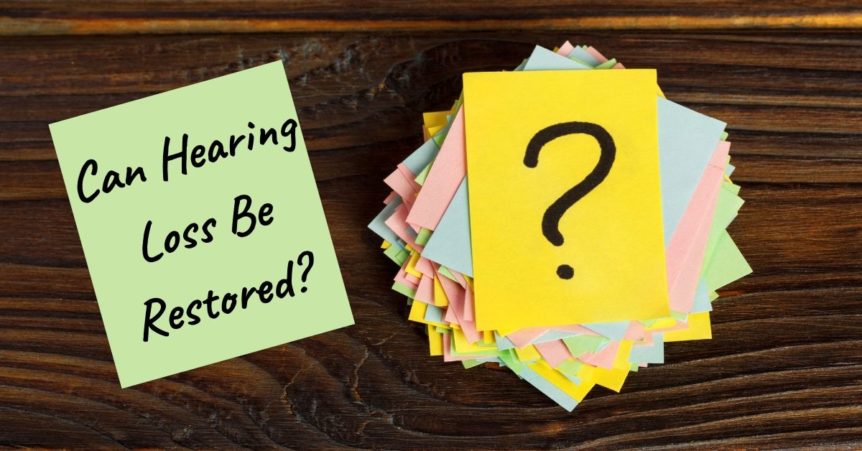Nearly 48 million Americans have some type of hearing loss that affects the communication, relationships, health and even the careers of those who have it. If you have hearing loss, you might wonder if there are treatments that can restore your lost hearing.
Treatment for sensorineural hearing loss
If you’ve been diagnosed with sensorineural hearing loss, you’re in good company. Also sometimes called “nerve deafness,” this is the most common type of hearing loss affecting adults, and it can occur for a variety of reasons — old age (presbycusis), exposure to sudden or persistently loud noise, disease and infections, head or acoustic trauma, tumors or medications.
Sensorineural hearing loss means the hair cells of the inner ear or the nerve pathways that connect the inner ear to the brain have been damaged. These hair cells, located in the cochlea, are responsible for translating the noise your outer ear collects into electrical impulses and then sending them along the auditory nerve for the brain to interpret as recognizable sound. Sensorineural hearing loss is permanent. No surgery can repair damage to the sensory hair cells themselves, but there is a surgery that can bypass the damaged cells.
Hearing Aids
If your hearing loss is due to damage to your inner ear, a hearing aid can be helpful. An audiologist can discuss with you the potential benefits of a hearing aid and fit you with a device. A hearing aid magnifies sound vibrations entering the ear. Surviving hair cells detect the larger vibrations and convert them into neural signals that are passed along to the brain. The greater the damage to a person’s hair cells, the more severe the hearing loss, and the greater the hearing aid amplification needed to make up the difference. However, there are practical limits to the amount of amplification a hearing aid can provide. In addition, if the inner ear is too damaged, even large vibrations will not be converted into neural signals. In this situation, a hearing aid would be ineffective.
Cochlear implants
Adults and children with severe to profound sensorineural hearing loss may be able to have partial hearing restored with a cochlear implant. A cochlear implant is a small, complex electronic device that can help to provide a sense of sound to a person who is profoundly deaf or severely hard-of-hearing. The implant consists of an external portion that sits behind the ear and a second portion that is surgically placed under the skin. Use of a cochlear implant requires both a surgical procedure and significant therapy to learn or relearn the sense of hearing The decision to receive an implant should involve discussions with medical specialists, including an experienced cochlear-implant surgeon.
Conductive hearing loss
Conductive hearing loss occurs when there is a problem transferring sound waves anywhere along the pathway through the outer ear, eardrum, or middle ear. If a conductive hearing loss occurs in conjunction with a sensorineural hearing loss, it is referred to as a mixed hearing loss. Depending upon the severity and nature of the conductive loss, this type of hearing impairment can often be treated with surgical intervention or pharmaceuticals to partially or, in some cases, fully restore hearing acuity to within normal range. Current treatments for conductive hearing loss include;
Surgery may correct conductive hearing loss that is due to the congenital absence of ear canal or failure of the ear canal to be open at birth, congenital absence, malformation and otosclerosis
Amplification may be a solution with the use of a bone-conduction hearing aid, or a surgically implanted, osseointegrated device or a conventional hearing aid, depending on the status of the hearing nerve.
Antibiotic or antifungal medications are used to treat chronic ear infections, or chronic middle fluid. Tumors usually require surgery.
Neighborhood Hearing Aid Center
The longer you wait to treat a hearing loss the worse you condition can become. Don’t wait to let things get out of hand. Visit us at Neighborhood Hearing Aid Center to set up a hearing appointment. We can find out exactly what kind of hearing loss you have and get you set up on a plan so you can hear all the best parts of your life again.

